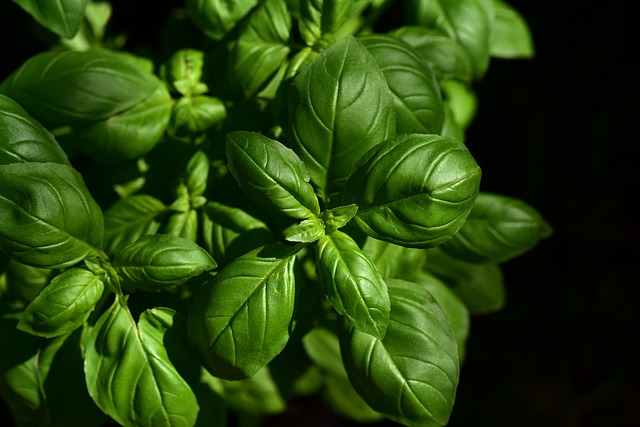By Lynda Kiernan, Global AgInvesting Media
The Development Bank of Japan (DBJ) has made an undisclosed investment in Equilibrium Capital’s Controlled Environment Foods Fund II, becoming the first regional Asian investor to do so.
Once overlooked as a viable alternative to the growing issue of providing food for an ever-populous world, Controlled Environment Agriculture (CEA) has gained much traction as of late, especially since COVID-19 has highlighted the vulnerability of existing ag supply chains.
As climate change intensifies and demographics shift, the world is seeing changes in food demand at the same time that it is seeing a constriction of arable land and natural resources. CEA provides a range of solutions that can decrease the environmental footprint of food production through the significant reduction of water pollution, the recycling of waste heat and carbon, and through increased efficiency in land and water use. As these issues continue to gain importance for both consumers and food producers, it is expected that advanced greenhouse technologies will see greater adoption and integration across the U.S., the EU, Japan, and other major markets.
“Almost every part of the ag value chain is in flux,” David Chen, CEO of Equilibrium Capital, told the hundreds of attendees who gathered for the first virtual Global AgInvesting event in August 2020.
“Where we grow our food, how we grow our food, how we get our food and what we’re eating is all changing simultaneously right now, which we think is one of the most exciting periods in agriculture. The punchline here is that sustainability and technology are the drivers of this change and …that ag is becoming an infrastructure sector.”
Building on Equilibrium’s relationships within the controlled environment production and distribution value chains, the firm’s Controlled Environment Foods (CEF) strategies consist of a diversified portfolio of advanced indoor ag technology and greenhouse facilities. Thanks to the firm’s early entry and partnerships in the sector, it has approximately $600 million invested in the CEA sector, and significant North American market share in vine crops, leafy greens, and berries.
Its two primary strategies of facility expansion equity and corporate expansion equity have served it well with its $82 million investment in 2019 in AppHarvest for the construction of a 60-acre, high-tech, climate-controlled greenhouse project in Morehead, Kentucky; its investments in Revol Greens, first in 2018 with a $11.3 million investment in a Minnesota-based greenhouse, and then in January of this year through a partnership with them to develop a 16-acre, advanced technology-automated lettuce and leafy greens greenhouse in Tehachapi, California.
“…indoor farming is more than just putting a roof over the land,” said Chen during Global AgInvesting 2020 in August. “Controlled Environment Agriculture is not about land, or geography or soil or climate; it’s the ultimate in BYO and DIY – bring your own climate, soil – do-it-yourself. It means that growing can be done anywhere – the Arabian desert to the fertile Midwest. It’s managing a technology firm that’s inside a farm which requires ‘riding the technology rate of change’.”
Through its investment in Equilibrium’s Controlled Environment Foods Fund II, DBJ stated that it intends to foster activity in the food and agriculture industries. But on a deeper level, the investment will give the bank a stake that exposes it to global trends and offers advanced knowledge in regard to CEA best practices.
This in turn will allow DBJ to foster further contributions to the industry’s next phase of growth, while it advances Fund II’s mission in promoting “sustainability in agriculture” and a more sustainable society.
This investment also puts DBJ’s corporate philosophy – “Design the future with financial expertise: continue to expand financial frontiers; provide the best solutions for customers and society; pursue sustainable development for Japan and the world” – into action; a tangible reflection of DBJ’s work to create diverse financial solutions that support the ongoing development of the food and ag industries in Japan.
“DBJ’s investment into Equilibrium Capital is a natural one for several reasons,” said Greg Mellinger, CEO of HighQuest Group, the parent company of Global AgInvesting. “It reinforces the growing trend of interest by Japanese institutional investors in the agricultural real assets sectors.”
“Second, an investment of this type conforms to a long-standing desire to support ESG/sustainability goals. Finally, Equilibrium’s innovative approach, extensive use of technology and big data, along with its scalability and repeatability, would hold appeal for many progressive investors, and especially for those in Japan.”
– Lynda Kiernan is editor with GAI Media, and is managing editor and daily contributor for Global AgInvesting’s AgInvesting Weekly News and Agtech Intel News, and HighQuest Group’s Oilseed & Grain News. She is also a contributor to the GAI Gazette. She can be reached at lkiernan@globalaginvesting.com

